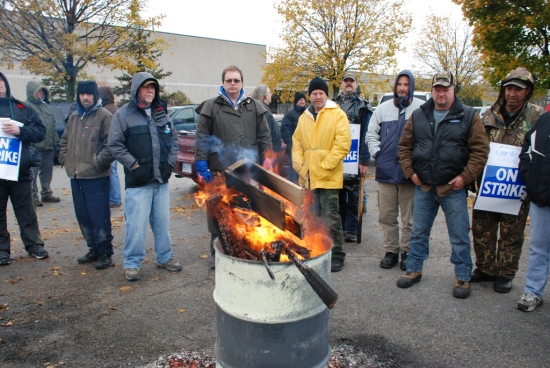The controversy surrounding zero hours contracts rages on, with yet another major employer dragged in to the mix. This week, Premier Foods has been forced into the spotlight after staff at its Hovis bakery in Wigan made the decision to take strike action over the use of agency workers employed under zero hours contracts.

In summary, existing full time workers are concerned that the more flexible agency workers will lead to Premier Foods cutting roles in a bid to save money on employment costs. Although representatives of Premier Foods met with union officials on Tuesday night, no suitable terms could be met and so the strike went ahead the next morning.
However, the Wigan site was the only Hovis bakery to take action against the firm on the subject. Altogether, Hovis operates ten bakeries across the UK.
In a statement, Premier Foods defended its use of workers employed under the controversial zero hours contract scheme.
It said; “We are disappointed that we have not been able to resolve the dispute and will continue to search for a satisfactory outcome, accepting that the limited use of agency labour to cover seasonal peaks, holiday and sickness is an integral part of our operational flexibility that is understood and accepted by all our other sites.”
According to the Bakers, Food and Allied Workers Union (BFAWU), which represents 250 of the Wigan site’s 357 employees, it was hugely important that workers made their feelings clear to Premier Foods at this point in time. This is because, it claims, 30 permanent positions were lost at the Wigan bakery in April with the resulting shortfall in employees being picked up solely by agency workers on zero hours contracts.
Furthermore, following the closure of Hovis’ Birmingham and London bakeries, the BFAWU is concerned that Premier Foods will choose to utilise agency workers to increase productivity at the Wigan bakery as opposed to creating new, full-time positions for local workers.
It appears that this is a problem especially prevalent in the hospitality industry, with figures released by charity organisation The Work Foundation revealing that almost one in 5 hospitality workers are currently under zero hours contracts. As a result, it believes that the planned governmental investigation into zero hours contracts will not be an adequate measure to address the problem and is calling for a more in-depth study.
Director of the Work Foundation, Ian Brinkley, says; “The investigation announced by Vince Cable is inadequate.
“A fuller investigation would enable accurate analysis and such data would help devise effective policy measures and map out best employment practice to protect workers most vulnerable to potential abuse.”
Although employment figures have looked much more optimistic of late, experts believe that the boom in businesses offering zero hours contracts to their employees has played a large part in this. Perhaps, rather than solely debating the merits of zero hours contracts, the government should in fact be putting more effort into tackling the growing problem of underemployment facing hundreds of thousands of British workers.
Do you think it is acceptable for large businesses to utilise zero hours contracts when filling temporary or seasonal positions, or should all contracts include a minimum hours clause to protect workers?
Previous Post
Loyalty Taken to the Next Level at Nando’s